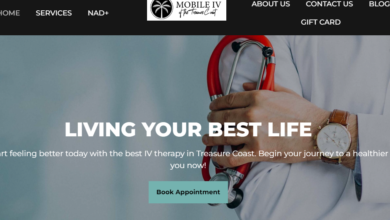How to Find the Best Primary Care Doctor for Your Needs
Finding the right primary care doctor is crucial to managing your overall health and well-being. Primary care doctors are often your first point of contact in the healthcare system and play a vital role in providing preventive care, managing chronic conditions, and coordinating specialist referrals. With so much at stake, choosing the best primary care doctor for your needs is a decision that should be made carefully. In this article, we’ll guide you through the process of finding the ideal primary care doctor to ensure you receive the highest quality care.
Why Choosing the Right Primary Care Doctor Matters
A primary care doctor serves as the cornerstone of your healthcare. They are responsible for:
- Preventive Care: Conducting routine screenings, vaccinations, and health check-ups to prevent diseases.
- Chronic Disease Management: Monitoring and managing chronic conditions like diabetes, hypertension, and asthma.
- Coordination of Care: Referring you to specialists and coordinating your overall care to ensure comprehensive treatment.
- Health Education: Providing guidance on lifestyle changes, nutrition, and exercise to promote overall well-being.
Given these responsibilities, it’s essential to find a primary care doctor who aligns with your healthcare needs and personal preferences.
1. Determine Your Needs and Preferences
Before beginning your search for a primary care doctor, take some time to determine your specific needs and preferences. Consider the following factors:
- Type of Care Required: Are you looking for a doctor who specializes in a particular area, such as internal medicine, family medicine, or pediatrics?
- Health Conditions: Do you have specific health conditions that require specialized management?
- Communication Style: Do you prefer a doctor who is highly communicative and involves you in decision-making?
Identifying your needs and preferences will help you narrow down your search and find a doctor who meets your criteria.
2. Seek Recommendations
Start your search by asking for recommendations from trusted sources. Here are some places to consider:
- Friends and Family: Ask friends, family members, or colleagues if they can recommend a primary care doctor they trust.
- Healthcare Providers: Consult with other healthcare providers you see, such as specialists or dentists, who may have recommendations for primary care doctors.
- Online Reviews: Check online review platforms to read about other patients’ experiences with various primary care doctors. Websites like Healthgrades, Vitals, and Yelp can provide valuable insights.
While recommendations can be helpful, remember to consider other factors beyond just personal referrals.
3. Verify Credentials and Experience
When evaluating potential primary care doctors, it’s important to verify their credentials and experience. Look for the following:
- Board Certification: Ensure the doctor is board-certified in their specialty. Board certification indicates that the doctor has completed the necessary training and passed rigorous exams.
- Education and Training: Review the doctor’s education background, including where they attended medical school and completed their residency training.
- Years of Experience: Consider the doctor’s years of experience in practice. An experienced doctor will have a broad range of knowledge and skills to manage various health conditions effectively.
You can typically find this information on the doctor’s practice website or by contacting their office directly.
4. Assess Communication and Interpersonal Skills
Effective communication is key to a positive doctor-patient relationship. When meeting with potential primary care doctors, assess their communication and interpersonal skills:
- Listening Skills: Does the doctor listen to your concerns and questions attentively?
- Clarity: Does the doctor explain medical terms and treatment options in a way that you can understand?
- Empathy: Does the doctor show compassion and empathy towards your health concerns?
A primary care doctor who communicates effectively and makes you feel comfortable is more likely to provide a positive and supportive healthcare experience.
5. Check Availability and Accessibility
Consider the doctor’s availability and accessibility to ensure they meet your needs:
- Office Hours: Check the doctor’s office hours to ensure they align with your schedule. Some doctors offer extended hours or weekend appointments.
- Appointment Scheduling: Assess how easy it is to schedule an appointment. Are you able to get an appointment in a timely manner?
- Location: Consider the location of the doctor’s office. Is it conveniently located for you? Are there parking facilities available?
Accessibility is important to ensure that you can easily attend appointments and receive timely care.
6. Evaluate the Medical Facility
The quality of the medical facility where the primary care doctor practices can impact your overall experience. Evaluate the following aspects:
- Cleanliness and Organization: Is the facility clean, well-maintained, and organized?
- Staff Professionalism: Are the staff members courteous and professional?
- On-Site Services: Does the facility offer on-site services such as lab tests, imaging, or minor procedures?
A well-managed and efficiently run medical facility contributes to a positive patient experience and ensures that you receive high-quality care.
7. Review Insurance and Payment Options
Ensure that the primary care doctor accepts your health insurance plan to avoid unexpected costs. Consider the following:
- Insurance Coverage: Verify that the doctor is in-network with your insurance provider. This can help reduce out-of-pocket expenses.
- Payment Options: If you don’t have insurance or prefer to pay out-of-pocket, inquire about the doctor’s payment options and fees. Are there flexible payment plans available?
Understanding the financial aspects of your care helps you manage costs and avoid surprises.
8. Consider the Doctor’s Approach to Preventive Care
Preventive care is a crucial component of maintaining good health. When evaluating potential primary care doctors, consider their approach to preventive care:
- Health Screenings: Does the doctor emphasize the importance of routine health screenings and preventive measures?
- Lifestyle Counseling: Does the doctor provide guidance on healthy lifestyle choices, such as diet, exercise, and stress management?
- Vaccinations: Does the doctor recommend and administer vaccinations as part of preventive care?
A proactive approach to preventive care can help you stay healthy and reduce the risk of developing chronic conditions.
9. Evaluate Patient Reviews and Satisfaction
Patient reviews and satisfaction can provide valuable insights into a primary care doctor’s practice. Look for reviews that highlight:
- Patient Experience: Are patients satisfied with the care they receive? Are there consistent positive or negative comments?
- Wait Times: Do patients mention wait times for appointments or in the office?
- Overall Rating: What is the doctor’s overall rating on review platforms?
Positive reviews and high ratings are indicators of a doctor who provides quality care and values patient satisfaction.
10. Assess Compatibility and Rapport
Finally, consider the compatibility and rapport between you and the primary care doctor. A strong patient-doctor relationship is essential for effective care. Assess:
- Personal Rapport: Do you feel comfortable discussing your health concerns with the doctor?
- Shared Values: Do the doctor’s values and approach to care align with your own?
Choosing a doctor with whom you have a good rapport enhances communication and helps build a trusting relationship.
Conclusion
Finding the best primary care doctor for your needs involves careful consideration of several key factors. From verifying credentials and assessing communication skills to evaluating availability and reviewing patient satisfaction, each aspect plays a role in ensuring you receive high-quality, personalized care.



